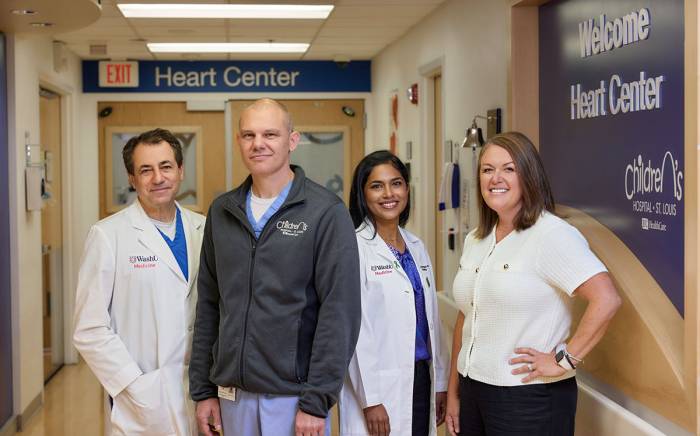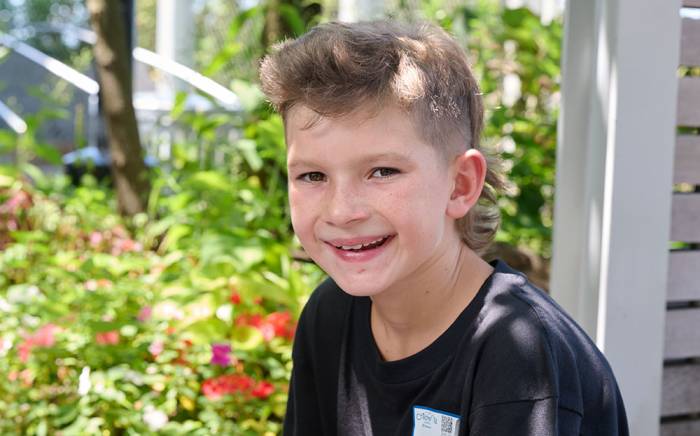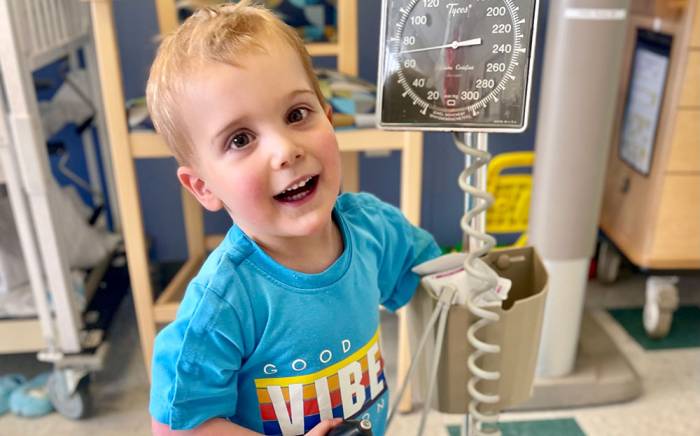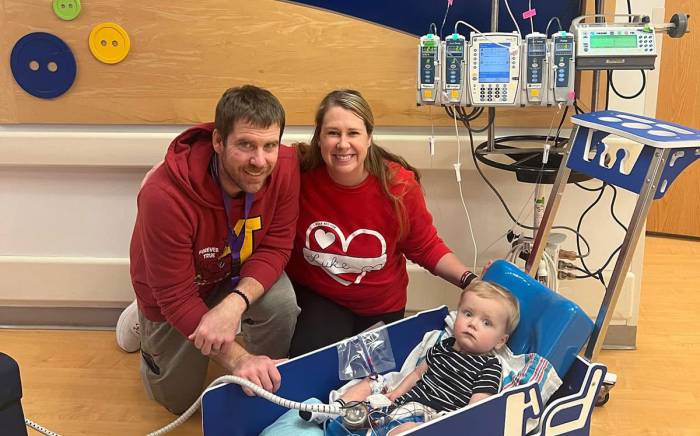Prior to 1971, children born with single ventricle congenital heart disease rarely lived beyond 10 years of age. With the development of the Fontan procedure and subsequent improvements in the surgery, the life expectancy for many of these patients has been extended by decades. Over time, however, their unique physiology results in their developing multi-organ disease that may involve their kidneys, lungs and liver. They also may have problems with growth and development, risks for clotting, and multiple immunologic issues.
St. Louis Children’s Hospital and Washington University School of Medicine now offer a multidisciplinary option for evaluating children for the noncardiac issues associated with Fontan physiology. The Fontan Clinic is one of only a few centers in the country to offer these patients a comprehensive evaluation that covers GI/liver, renal, pulmonary, immunology, endocrinology, dietary, hematology and nephrology.
 “Many of these patients eventually need a heart transplant because their heart physiology fails over time,” says Washington University physician Kathleen Simpson, MD, pediatric cardiologist in the St. Louis Children’s and Washington University Heart Center. Dr. Simpson directs the Fontan clinic. “If they have developed noncardiac issues that are undiagnosed and untreated, they are at higher risk for transplantation and in some cases may become ineligible for a new heart.”
“Many of these patients eventually need a heart transplant because their heart physiology fails over time,” says Washington University physician Kathleen Simpson, MD, pediatric cardiologist in the St. Louis Children’s and Washington University Heart Center. Dr. Simpson directs the Fontan clinic. “If they have developed noncardiac issues that are undiagnosed and untreated, they are at higher risk for transplantation and in some cases may become ineligible for a new heart.”
Patients referred to the Fontan Clinic undergo a two-day evaluation: the first day for laboratory testing and diagnostic imaging, and the second to meet with specialists who review the test results with patients and their families. A comprehensive report is then provided to patients’ referring cardiologists with recommendations for possible medication changes or further therapy.
“For instance, for patients with low bone density we may recommend prescribing vitamin D or calcium supplements. If there is evidence of possible liver disease, a liver biopsy is recommended in some patients. If there is evidence of growth failure, medication or dietary changes may be suggested. A pulmonary assessment may reveal a patient needs therapy for lung disease,” explains Dr. Simpson. “These are all ways in which we work with patients’ primary cardiologists to ensure the progression or severity of any noncardiac disease is decreased, and in so doing increase patients’ overall health and possibly ameliorate noncardiac issues at time of heart transplantation should the time come.”
The clinic’s current recommendation is to refer Fontan patients for an initial evaluation when they are at least 10 years from the time of their Fontan operation. If no further intervention is needed and no major issues identified, the patients should be re-evaluated every three years.
The Fontan Clinic schedules patients on the fourth Friday of the month, with testing performed on Thursday. For additional information or to refer a patient, contact Children’s Direct at 800.678.HELP (4357).









